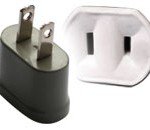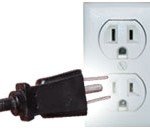The Kingdom of Lesotho is made up mostly of highlands, where many of the villages can be reached only on horseback, by foot or light aircraft. Lesotho’s high altitude (the entire country lies above 1000m) and stunning mountainous landscape have earned it the moniker “Kingdom of the Sky”.
The Land of Lesotho, pronounced Li-soo-too, roughly translates to “The Land of the People who Speak Sesotho”, which is the official language, along with English. Basotho, is what the people are called and singularly they are known as Mosotho. The Basotho people make up 98 percent of the population of this small country that is solely surrounded by South Africa. Countries that are entirely surrounded by another country are called enclaves. Lesotho is one of three in the world (the others are The Vatican City and San Marino.)
Resources are scarce – a consequence of the harsh environment of the highland plateau and limited agricultural space in the lowlands. The former British protectorate has been heavily dependent on the country which completely surrounds it – South Africa.
Over the decades thousands of workers have been forced by the lack of job opportunities to find work at South African mines. The Lesotho Highlands Water Project was completed in the 1990s to export water to South Africa.
Lesotho has one of the highest HIV prevalence rates in the world, with one in five adults living with HIV, and more infections per 100,000 people than most other countries, including neighbouring Namibia, Botswana and Eswatini.
Facts about Lesotho:
- Capital: Maseru
- Area: 30,355 sq km
- Population: 2.2 million
- Languages: Sesotho, English
- Life expectancy: 51 years (men) 57 years (women)

Blog Posts
Lesotho: Drakensburg Mountains & the Sani Pass
Lesotho: Tsehlanyane National Park and Maliba Lodge
USEFUL INFORMATION
Currency & banking
Current Exchange Rate: $1USD = 18.58 Lesotho Loti
Currency
Lesotho’s main currency is the Maloti, which is tied to the South African Rand. South African Rand is spent interchangeably with Maloti. Maloti is available only in Lesotho, and cannot be used in South Africa.
Banking
Travellers’ cheques and most credit cards are accepted in Lesotho. There are no restrictions on the amount of money tourists may bring into the country. Lesotho’s three commercial banks, comprising Standard Lesotho Bank, Nedbank and First National Bank, offer currency exchange services in their main Maseru branches.
Banks are open Mondays to Fridays from 08;30am to 03:30pm and on Saturdays from 08:30am to 12:00noon.
Most major hotels, shops, restaurants, and travel agencies accept credit cards, though it is best to check with credit and debit card companies as to their acceptance before leaving home. Local ATMs in Lesotho have the facility to accept international ATM cards but are unreliable.
Getting around
Air
Lesotho Airways has daily flights to and from Johannesburg International Airport which take approximately one hour and ten minutes. Lesotho Airways also provides connections to some of the main towns.
Railways / Train Services
The South African Railway system links into Lesotho from Maseru to Marseille on the Bloemfontein/Natal main line.
Bus
Generally well served by privately owned buses and smaller passenger vehicles, particularly between major centres. Some unsealed roads become impassable during the rainy season.
Road
The main road running from the north to the western and southern borders is sealed and passable throughout the year. All other minor roads can be impassable during the rains.
Driving is on the left-hand side and driving licences issued in most countries are valid for a period of up to six months, provided that they are printed in English or are accompanied by a certified translation. International Licences are recognised.
Food, Drink & Cuisine Advice
Restaurant food is usually meat served with chips although fish is widely available. Vegetarians will cope but get bored with canned mixed vegetables. Salads are widely available. You should try papa, the Basotho staple, at least once: made with maize meal, it resembles mashed potatoes.
South African wine is available in restaurants and is excellent value. Local and South African beer is widely available but only the brave should try joala, a traditional brew made from sorghum.
Internet & Wi-Fi
If you don’t mind not having Internet, you’ll likely find free Wifi in restaurants, shopping malls, and hotels.
That said, if you need data to get around, call a cab, or translate Sesotho – you may want to get a SIM card, these are available from Vodacom, Econet or Airalo, the local mobile telephone service providers. You’ll be able to pick these up in stores in the towns throughout Lesotho.
Health advice
The US Center For Disease Control maintains an updated list of medical advice for those travelling to Lesotho
They also suggest being vaccinated for hepatitis A. There is also some advice about protection for hepatitis B and rabies – but this depends to some degree on where you are heading and what you are doing.
There is a high risk of malaria throughout the year in the Caprivi Strip, Kavango and Kunene regions. For further information see NaTHNaC’s information sheet.
Cholera is known to occur in Lesotho.
Additionally, malaria, yellow fever, zika virus, chikungunya virus and dengue fever are a risk in Namibia so avoiding being bitten by mosquitos is advised. Also, ticks can carry diseases so when going through forested areas or long grass protect yourself by wearing long trousers and shirts.
Some people suffer skin problems and/or dehydration due to Namibia’s hot and dry climate. Make sure you carry a good supply of drinkable water.
Only eat food that is cooked and served hot. Eat fruits and vegetables that you have personally washed in clean water or peeled yourself. Never eat food sold by street vendors. Only drink boiled water that is sealed and has been filtered and disinfected. Prefer carbonated drinks, hot coffee or tea, and pasteurized milk.
Healthcare
Lesotho has basic medical facilities. Most expatriates use medical facilities in Bloemfontein, South Africa, a 90-minute drive (140km) from Maseru.
As always when you travel you should take out the necessary travel insurance coverage. We always use World Nomads but there are plenty of other insurance companies that offer travel insurance
Safety
Muggers in central Maseru frequently target foreign nationals. Don’t walk alone in isolated areas or after dark and avoid driving in rural areas at night. When driving in urban centres, especially Maseru, keep doors locked, windows shut and valuables out of sight. Park in well-lit areas and do not pick up strangers. Take care at the approaches to main border crossings, particularly at night. There have been cases of armed car-jacking. If you are involved in such an incident, offer no resistance.
Take precautions to safeguard valuables and cash. Leave them in hotel safes, where practicable. Keep copies of important documents, including passports, in a separate place.
There is often an increase in criminal activity, especially property crimes, leading up to the Christmas and Easter holiday periods. Take extra care and be vigilant during this period.
Local Laws
- Consensual same-sex sexual relations between men are criminalised in Lesotho but the British High Commission is not aware of these laws being enforced. There is no explicit prohibitions of consensual same-sex relations between women. LGBTQI people may experience stigma and discrimination. It is advisable to refrain from overt displays of affection in public, such as holding hands or kissing.
- Possession of drugs is a serious offence and punishments can be severe.
Climate
Lesotho is a small mountainous country, an enclave of South Africa, by which is entirely surrounded. Here, the climate varies essentially with altitude: it is temperate at the lowest elevations, which don’t go, however, below 1,400 meters (4,600 feet) above sea level, while it gets colder with increasing altitude.
The capital, Maseru, is located at 1,600 meters (5,250 feet) above sea level, but most of the country is crossed by the Drakensberg range and lies above 2,000 meters (6,500 feet); the highest peak is Thabana Ntlenyana, with its 3,482 meters (11,424 feet).
In Lesotho, the weather is often unstable, with rapid changes in wind and temperature from day to day. Winter is the driest season, while summer is the rainiest. Being in the Southern Hemisphere, it obviously has reversed seasons in comparison with Europe and North America.
Snow is more common at high altitudes, above 2,000 meters (6,500 feet), where rainfall is more abundant as well.
Visa information
All visitors to Lesotho must have a valid passport for at least six months after the date of entry, and have sufficient pages for entry and exit stamps (at least three blank pages for the entry and exit stamps). All visitors must also have a valid return ticket. Citizens from many countries do not require a visa to enter Lesotho, but the length of stay varies, so check the Lesotho tourist visa website to see if you require a visa and if not how long you are permitted to stay.
Electrical
In Lesotho the power plug sockets are of type M. The standard voltage is 220 V and the frequency is 50 Hz.
Which power plugs and sockets are used in Lesotho?
In Lesotho the power plug sockets are of type M. Check out the following pictures.
Type M: looks like plug D, but with larger pins. This socket only works with plug M.
- Type M: looks like plug D, but with larger pins. This socket only works with plug M.
 |
| Type M: This socket has no alternative plugs |




